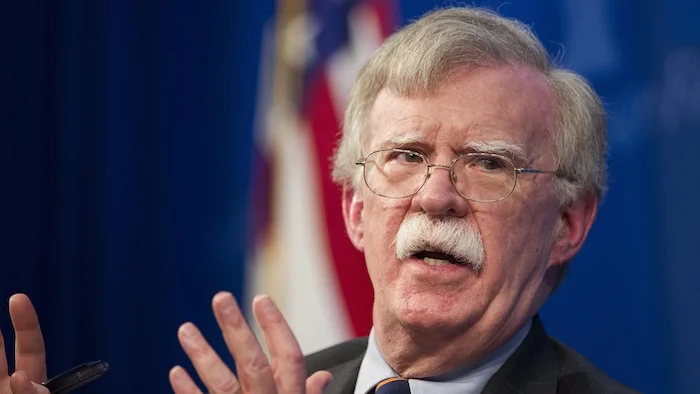John Bolton signals possible trump reversal on Western Sahara recognition

Former U.S. National Security Advisor John Bolton has reignited debate over the future of Western Sahara, suggesting in a recent interview that former President Donald Trump might reconsider the U.S. recognition of Moroccan sovereignty over the disputed territory.
In an interview with Spanish newspaper El Independiente, Bolton openly criticised the 2020 decision by Trump’s administration, calling for a return to the original U.S. policy that supported a referendum on self-determination for the Sahrawi people.
“The U.S. policy on Western Sahara should return to its origins of 1991, supporting a referendum so the Sahrawis can decide their own future,” he said.
The recognition of Morocco’s sovereignty over Western Sahara came as part of the Abraham Accords, in which Morocco agreed to normalise relations with Israel. But Bolton dismissed the deal’s strategic merit.
“The Moroccans would have accepted the agreement with Israel anyway, because it was in their interest,” he argued, describing the recognition as an unnecessary concession made by officials “who had no idea what Western Sahara is, where it is, or why it matters.”
When asked if Trump might reverse his stance, Bolton didn’t rule it out.
He suggested Trump could pivot if there were personal or business motivations, referencing a hypothetical scenario where the Trump Corporation might seek hotel development in the territory.
“If he sees a reason to change his position, he might support a referendum,” Bolton said.
He also dismissed Morocco’s efforts to brand the Polisario Front—a liberation movement seeking Sahrawi independence—as a terrorist group.
“They never succumbed to the radicalism that spread across the Middle East after Iran’s 1979 Islamic Revolution,” Bolton noted, calling the terrorism allegations “completely false.”
He added that NGOs operating in Sahrawi refugee camps in Tindouf, Algeria, have not reported any foreign extremist influence.
Bolton underscored that the only viable path forward lies with the Sahrawi people: “The only way to resolve this conflict is to hold a referendum.”
He argued that the people of Western Sahara, many of whom remain in refugee camps, “deserve to be able to return home.”
Beyond the moral case, Bolton presented economic and strategic arguments.
He noted the annual cost of MINURSO—the UN peacekeeping mission in Western Sahara—has reached $60 million for the U.S., a figure he believes a Trump campaign could target with a promise to cut spending and resolve a decades-old conflict.
Bolton also invoked growing Chinese and Russian influence in Africa as a reason to act.
“This is not the time to leave an opening,” he said, suggesting a U.S.-backed referendum could counter rising global competition in the region.
Ultimately, Bolton’s remarks hint at the unpredictable nature of U.S. foreign policy under Trump and suggest that Western Sahara may once again become a geopolitical flashpoint—one shaped not only by ideology and diplomacy, but also by personal ambition and shifting global alliances.
About The Author
dailymailafric
I am an avid African news observer, and an active member of Daily Mail Africa.
I’m Passionate about staying informed on diverse topics across the continent,
I actively contribute to publishing on political, economic and cultural developments in Africa.



